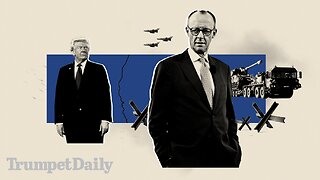Premium Only Content

“Who really Governs” The Role of Civil & Public Servants in Global Democracies.
In democratic systems around the world, public servants hold a constitutional mandate and are bound by legal frameworks that dictate their functions. Their role is to support elected representatives through nonpartisan effective implementation & efficient execution of policies in National interest, to provide informed & unbiased lawful advice, and to ensure that the government machinery operates dedicatedly serving public interest for the good of the citizenry at large. One of the core responsibilities of public servants is to maintain high competency levels in administrative work. Often referred to as the "backbone of governance," these bureaucrats are entrusted with implementing the policies established by elected officials, upholding transparency, and maintaining the rule of law. Yet, in several major democracies, two pressing questions have emerged: 1) Are public servants adequately trained and competent to fulfil their designated roles amid contemporary challenges? and 2) Have these public servants evolved into de facto rulers, wielding more influence behind the scenes than the elected officials themselves? Addressing these questions is crucial for the health of any democracy, as the effectiveness and integrity of democratic systems—alongside public trust, governance, and political accountability—depend significantly on their performance. The imbalances existing today, become clearer, when considering how bureaucrats generally manage to place the onus of public answerability on elected politicians who then face direct public scrutiny and often find themselves becoming the face of policy & administrative failures while concerned bureaucrats behind remain insulated from public accountability & answerability.
-
 LIVE
LIVE
Slightly Offensive
3 hours agoCandace REDPILLS the Masses in BOMBSHELL Theo Von Interview | Guest: Shane Cashman
1,132 watching -
 LIVE
LIVE
megimu32
3 hours agoON THE SUBJECT: IRL Streamers Attacked & Nostalgic Animal Movies That Made Us Cry
344 watching -
 1:00:54
1:00:54
The Tom Renz Show
6 hours agoMore Epstein/FBI, a Scary Trade War, & the Dem Echo Chamber
829 -
 40:43
40:43
Kimberly Guilfoyle
7 hours agoDems Double Down on Delusion-Why? Live with Tony Kinnett & Bo French | Ep.202
61.7K30 -
 1:28:42
1:28:42
Redacted News
5 hours agoBREAKING! SOMETHING BIG IS HAPPENING IN EUROPE ALL OUT WAR IS COMING AGAINST RUSSIA, TRUMP FURIOUS
108K263 -
 47:50
47:50
Candace Show Podcast
6 hours agoBREAKING: Judge Makes Statement Regarding Taylor Swift's Text Messages. | Candace Ep 155
94.3K105 -
 DVR
DVR
Josh Pate's College Football Show
3 hours agoCFB’s Most Hated Teams | FSU & Clemson Future | Big Ten Win Totals | Star Rankings Overrated?
5.76K -
 1:33:47
1:33:47
CatfishedOnline
4 hours agoGoing Live With Robert - Weekly Recap
19.4K -
 55:18
55:18
LFA TV
1 day agoEurope’s Sudden Turn Against America | TRUMPET DAILY 3.6.25 7PM
25.5K3 -
 4:21
4:21
Tundra Tactical
4 hours ago $1.38 earnedPam Bondi MUST Enforce Due Process NOW!
18.4K1